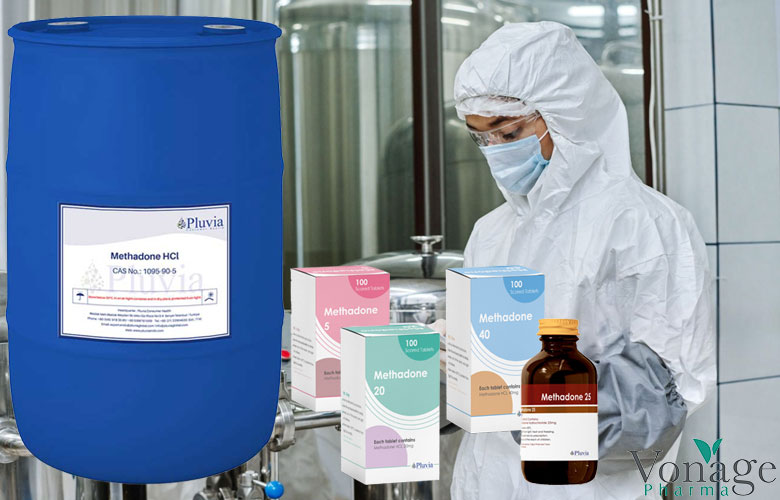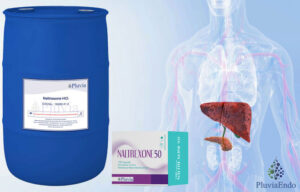Methadone is a synthetic opioid that plays a crucial role in the management of pain and the treatment of opioid use disorder. Among its various formulations, Methadone 20 mg is a commonly prescribed dose that requires careful administration to ensure patient safety and efficacy.
Understanding Methadone 20
Healthcare providers typically utilize Methadone20 mg in two primary contexts: as a pain management solution and as part of a comprehensive treatment plan for individuals struggling with opioid addiction. Its unique pharmacokinetic properties allow it to provide prolonged analgesic effects, making it suitable for patients with chronic pain conditions. However, due to its potency and potential for misuse, it is essential to administer Methadone 20 with caution.
Indications for Use of Methadone 20
- Pain Management: Methadone is often prescribed for patients experiencing moderate to severe pain, especially when other analgesics are ineffective. The initial dosing is typically adjusted based on the patient’s response and tolerance.
- Opioid Use Disorder Treatment: Healthcare providers also use methadone in maintenance therapy for individuals with opioid dependence. In this context, Methadone 20 helps reduce withdrawal symptoms and cravings, allowing patients to stabilize their lives while undergoing treatment.
Safe Administration of Methadone 20
Administering Methadone 20 requires a thorough understanding of the drug’s properties and the patient’s medical history. Here are key considerations for safe administration:
Initial Dosing Guidelines
- Healthcare providers should carefully evaluate the initial oral dose of Methadone 20 mg for opioid-naive patients. Some guidelines suggest starting doses between 5 mg and 15 mg.
- Healthcare providers should monitor patients closely for signs of sedation or respiratory depression, particularly within the first few hours after administration.
Titration and Dose Adjustment
- The healthcare provider should adjust based on the patient’s response after the initial dose.
- It is crucial not to exceed a total daily dose increase of 10 mg every 5 days, especially in patients with low tolerance or those who are at higher risk due to concurrent medical conditions.
Pluvia Endo, a leading manufacturer of methadone and other finished dosage forms (FDFs), produces Methadone 20 mg along with methadone hydrochloride (HCl), ensuring high-quality standards in its production. Besides, rest of the dosages that Pluvia Endo produces are:
Monitoring for Adverse Effects
Patients receiving Methadone 20 should be closely monitored for potential side effects, including:
- Respiratory Depression: This poses one of the most serious risks associated with methadone use. Healthcare providers should observe patients for signs of slowed or difficult breathing, particularly during the first few days of treatment.
- Sedation: Excessive drowsiness can indicate an overdose risk. If sedation occurs, healthcare providers should reduce subsequent doses until the patient stabilizes.
- Drug Interactions: Methadone can interact with other medications, particularly those that depress the central nervous system, such as benzodiazepines and alcohol. Healthcare providers must evaluate all medications a patient is taking before prescribing Methadone 20.
Special Considerations
Patient Populations at Risk
Certain populations may require special consideration when being prescribed Methadone 20:
- Elderly Patients: Older adults may have increased sensitivity to opioids; therefore, starting doses should be lower (around 10 mg) with careful monitoring.
- Patients with Respiratory Conditions: Individuals with pre-existing respiratory issues such as obstructive sleep apnea or severe lung disease face a heightened risk for respiratory depression and require close monitoring.
- Obese Patients: Obesity can alter drug metabolism and increase the risk of adverse effects; thus, careful titration is essential.
- Ultra-rapid Metabolizers: Patients who metabolize methadone quickly may require higher doses, but healthcare providers must still monitor them closely to prevent overdose.
Patient Education
Educating patients about the safe use of Methadone 20 is vital:
- Patients should understand the importance of adhering strictly to prescribed doses.
- Healthcare providers should inform patients about potential side effects and instruct them to report any concerning symptoms immediately.
- Emphasizing safe storage practices can prevent accidental ingestion by children or pets.
Conclusion
In summary, Methadone 20 mg is a powerful tool in pain management. It is also effective in treating opioid use disorder when administered correctly. Pluvia Endo‘s commitment to quality manufacturing ensures patients receive effective formulations that meet stringent safety standards. However, due to its potency and potential risks, healthcare providers must approach methadone therapy with caution. They should employ careful dosing strategies and vigilant monitoring practices.
By adhering to established guidelines and prioritizing patient education, healthcare professionals can maximize the therapeutic benefits of Methadone 20. This approach also helps minimize the risks associated with its use. As we continue to navigate the complexities of opioid therapy, understanding the nuances of medications like methadone is essential. This knowledge will help ensure safe and effective patient care.







